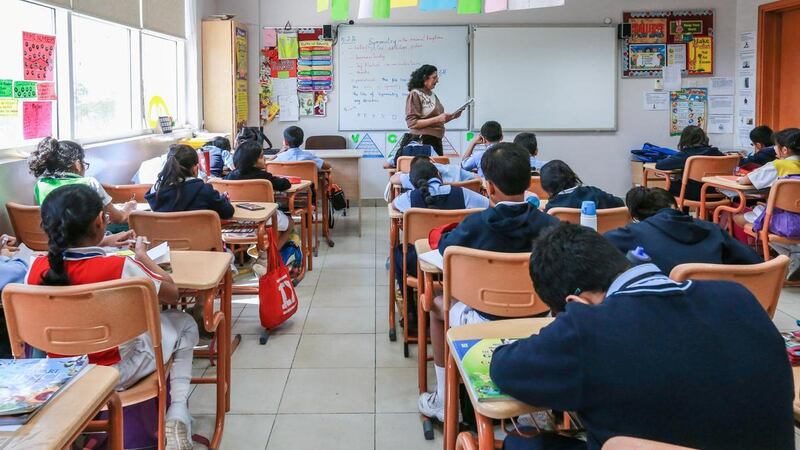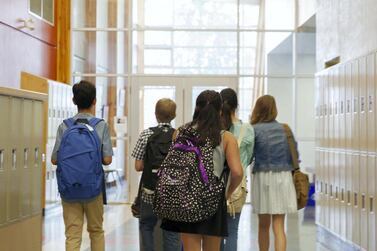Private schools will not be able to increase their tuition fees next academic year, Dubai's education regulator said on Thursday.
The announcement from the Knowledge and Human Development Authority was prompted by the results of the annual Education Cost Index, calculated by the Dubai Statistics Centre at minus 2.35 per cent.
Mohammed Darwish, head of KHDA’s regulations and permits commission, said the move "prioritises the interests of students and parents and encourages investment in the education sector by allowing schools to develop long-term growth plans".
Mr Darwish said it also motivated schools to improve the quality of education.
"The Education Cost Index provides complete transparency to both families and investors and balances expectations,” he said.
Over the past seven years, 72 schools have opened in Dubai in which more than more than 70,000 pupils have enrolled, which is a 31 per cent rise in the number of pupils at private schools.
The annual KHDA School Fees Framework allows schools to increase fees depending on their inspection results and the index.
The index of minus 2.35 per cent means that fees will remain unchanged for the 2020-2021 academic year.
Some private schools may be eligible for an exception, the regulator said.
Enrolment at Dubai’s private schools increased by 2.9 per cent last year, the latest education landscape report said.
Last year, private schools in Dubai were be able to increase fees for the first time in two years.
The authority cleared school operators to increase tuition fees by a maximum of 4.14 per cent for the 2019-2020 academic year.
Kamal Kalwani, chief executive of private school operator Ambassador Education in Dubai, said freezing fees would "make education in Dubai more attractive".
"From a school’s perspective, the costs of paying teachers will always go up because we have to retain our talent," Mr Kalwani said. "But that is not the only component of running a school.”
He said schools should look at the decision holistically.
"This is not a permanent measure and schools in Dubai are doing their part by making education more affordable," Mr Kalwani said. "This helps families out and we are happy to do our part."
Schools run by Ambassador Education will not be applying for any exceptions to increase fees.
Last year, a survey of 3,000 parents found that more than more than six in 10 parents believed school fees were too high in Dubai.
The study, by the Dubai consultancy Education Intelligence Group, also showed 80 per cent of families spent between 5 and 25 per cent of their household income on their children’s education.
Clementina Kongslund, 42, a Romanian mother of two, said she was pleased fees would not rise but hoped it would not be at the expense of quality.
“This is good news but I hope the schools will treat the teachers and the other staff well and not try to compensate from their salaries or reduce the investment in equipment,” Ms Kongslund said.
“It is better to have less profit than unhappy employees."
Taaleem, a school operator in Dubai, last year said it would reduce or maintain fees across their schools but still give teachers a pay increase.
“Following consultation with our parent body, board and the KHDA, we took the decision in November last year to reduce or at least maintain school fees across our schools for the academic year 2020-2021,” said Gavin Walford-Wright, chief admissions officer at Taaleem.
"The recruitment and retention of the very best professionals is key to Taaleem’s future ambitions."








